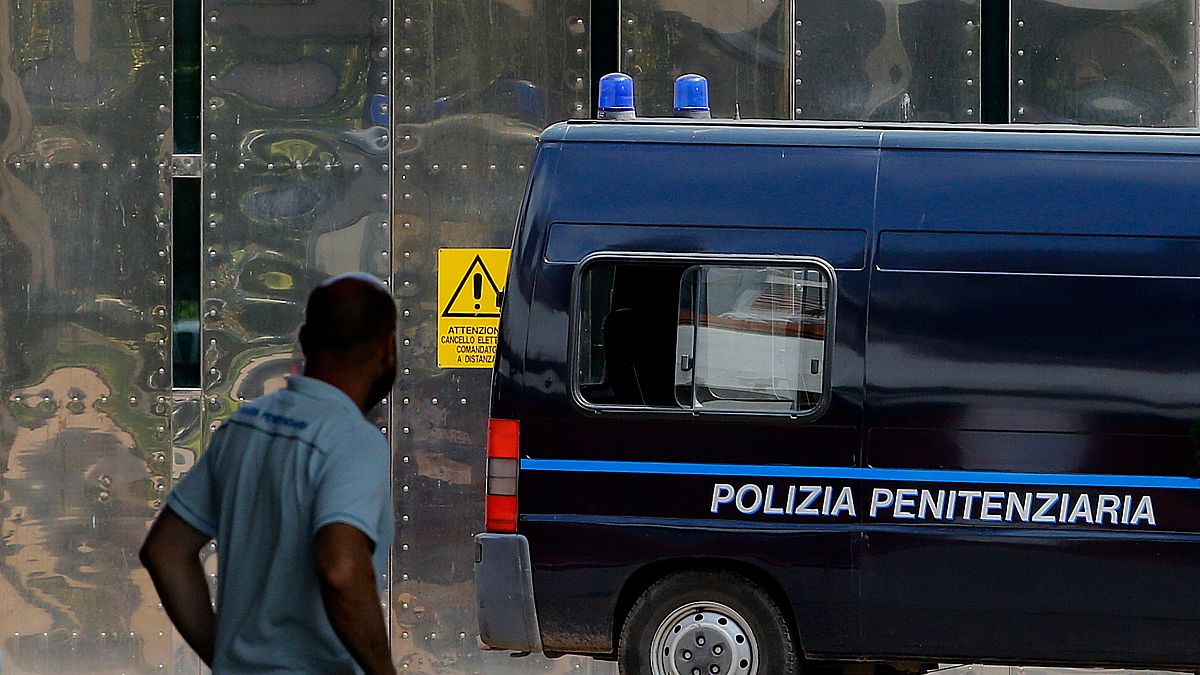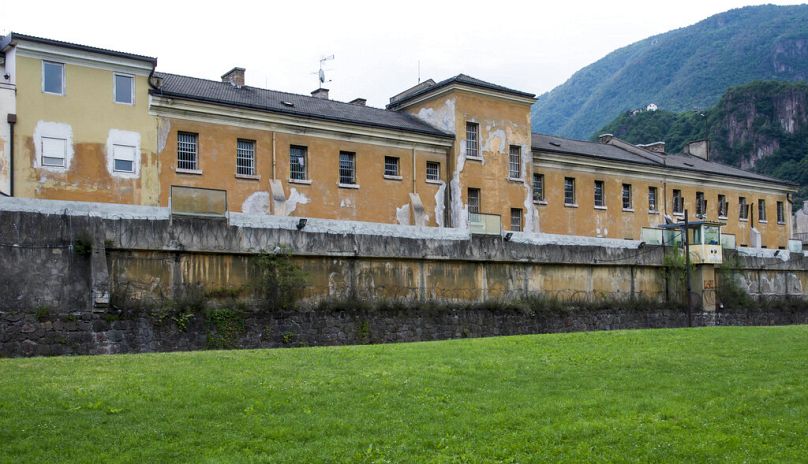According to local NGOs, in 56 out of 190 Italian prison facilities the overcrowding rate is above 150%.
The Italian parliament's recent approval of a new law to improve prison conditions has ignited a fiery political debate.
Intending to address the long-standing issues within Italy's carceral system — in particular overcrowding — the so-called "prison decree" promises an increase in prison staff and a simplified process for early release, among other measures.
Yet while some have hailed the decree, others argue that it will not do enough to address the true problems plaguing the system.
The decree's proponents are particularly concentrated in the centre-right Forza Italia party, which is part of Italy's governing coalition. They see it as a leap forward in efforts to tackle overcrowding and bring down the alarming number of inmates taking their own lives.
Supporters argue that for too long, the issue of prison reform has been ignored, with previous governments failing to make substantial progress.
"Overcrowding and suicides committed in prison are serious problems that are being dealt with for the first time in 15 years, following a lack of progress by left-wing parties on this front," Forza Italia MP Pietro Pittalis says. "Rights protection and security are the main priorities."
Nonetheless, despite the government’s optimism, the decree has drawn sharp criticism from human rights organisations and prison reform advocates.
Scratching the surface
A particularly strong critic is the NGO Antigone, which independently monitors detention facilities.
With Italy's prison overcrowding rate standing at a staggering 130% and 65 suicides recorded this year alone, Antigone argues that the new measures are insufficient to bring about meaningful change and amount to little more than political signalling.
As Michele Miravalle, who carries out regular site visits on Antigone's behalf, told Euronews: "The government’s intervention on the matter was overdue, but the issue is that, in order to fulfil a mere political goal, the approach that has been chosen is not systemic and won’t change the situation.
"In some parts, the bill seems disappointing. It’s like trying to repair a house that has structural problems and is about to fall — in this case, the house represents the prison system. Instead of intervening on the foundations, you only fixed the windows."
According to Antigone, in 56 out of 190 detention facilities, the overcrowding rate is above 150%, and only 38 have not yet reached full capacity.
But the problem is not just limited to Italy The Council of Europe’s 2023 annual penal report on prison populations highlighted Italy as one of several EU countries grappling with severe overcrowding in its prisons, along with Cyprus, Romania, France, Belgium, Hungary and Slovenia.
"For 30 years, both in the US and in Europe, it’s been decided that criminal law and prison systems should be used to resolve a number of issues that have nothing to do with them, but rather can be described as social problems," notes Miravalle. "This includes issues like drug abuse, mental health, and poverty."
For now, the prospects of a turnaround are weak. Some of the Italian decree's provisions may take months or more to be fully implemented, and the immediate effects on prison conditions are likely to be minimal.
And as the summer months bring higher temperatures, the already harsh conditions in overcrowded prisons are expected to deteriorate further.
The debate over the prison decree highlights a fundamental question: can Italy's prison system be reformed incrementally, or do its problems demand a radical overhaul? For now, the country can only wait and see what impact, if any, this latest measure makes.













